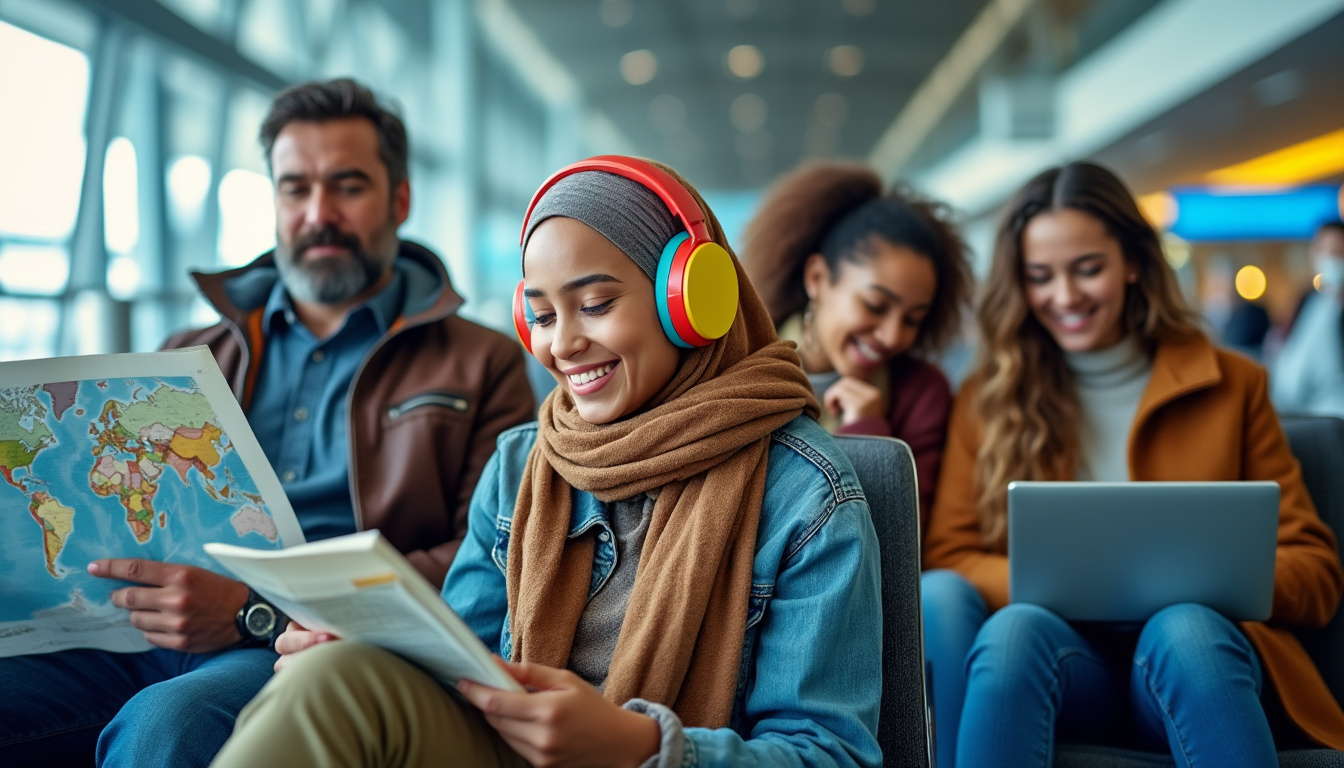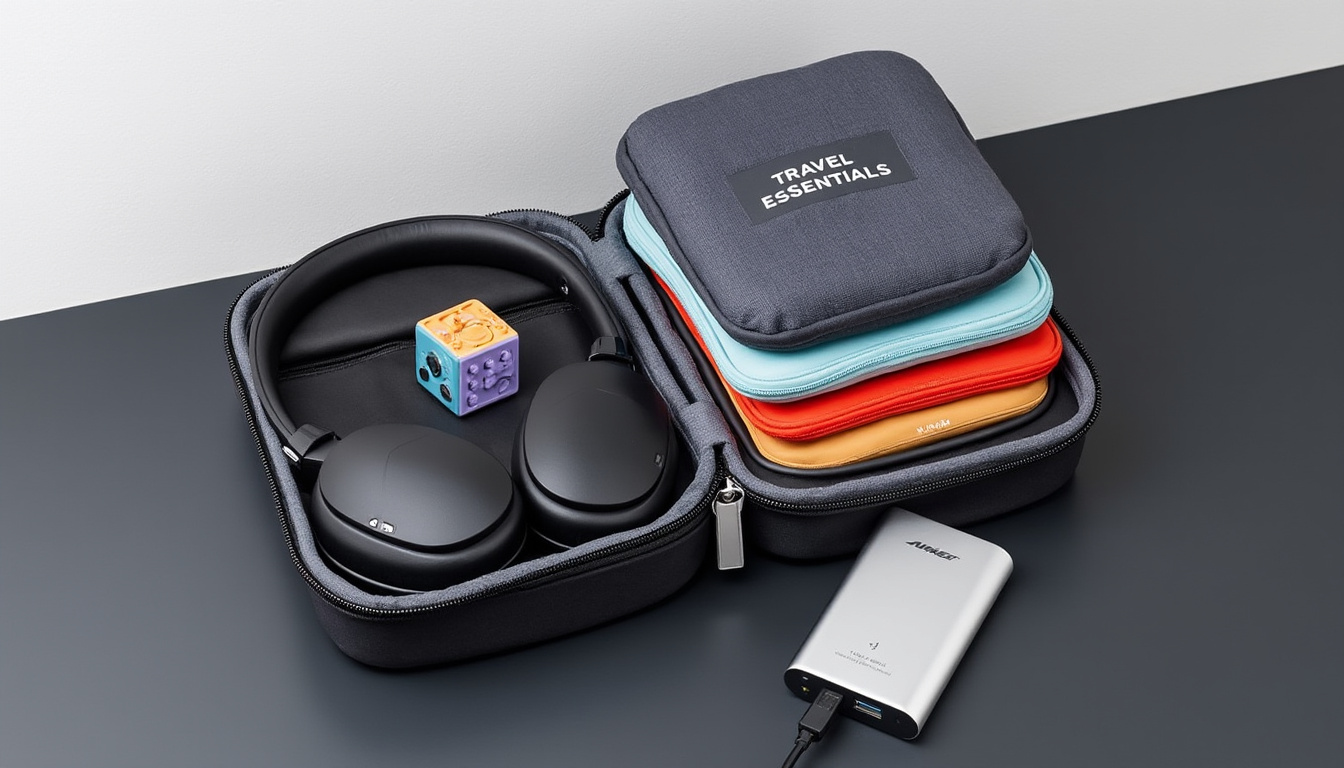Traveling can be a challenging experience for many, but for neurodivergent travelers, navigating the complexities of the journey requires even more consideration. Recent research from Booking.com sheds light on the unique needs and preferences of neurodivergent individuals, highlighting essential items and strategies that can enhance their travel experiences. Understanding these factors is key to ensuring that everyone has the opportunity to explore the world comfortably and confidently. This article delves into the findings, offering insights into market trends, helpful technologies, and practical travel tips for neurodivergent travelers.
- Understanding the needs of neurodivergent travelers
- Essential items that enhance comfort and accessibility
- Innovative technologies improving travel experiences
- Market trends and how businesses can adapt
Understanding the needs of neurodivergent travelers

The concept of neurodiversity encompasses a wide range of neurological differences, affecting how individuals perceive and interact with the world. Recent reports indicate that about 15-20% of the global population identifies as neurodivergent. These differences can manifest in various ways, including heightened sensitivities to sensory stimuli, difficulties in social interactions, or unique cognitive processing styles. Understanding these needs is critical for creating a travel environment that caters to everyone.
Challenges faced during travel
Traveling brings a host of challenges for neurodivergent individuals. Research conducted by Booking.com indicates that a significant number feel overwhelmed by busy environments, such as airports and tourist attractions. The noise, crowds, and unpredictability often lead to anxiety, making it essential to provide strategic solutions. In fact, 74% of Indian neurodivergent travelers expressed that they would prefer designated quiet spaces in airports and hotels. Such spaces play a crucial role in allowing them to decompress and regain their composure during their trips.
The role of advanced planning and preparation
Preparing for a trip involves more than just booking accommodations and flights. For neurodivergent individuals, pre-travel preparations are vital. The notion of “travel rehearsals,” controlled scenarios that allow travelers to familiarize themselves with their journey, is gaining traction. Notably, 74% of respondents indicated a strong desire for such rehearsals, emphasizing their importance in reducing anxiety. Airlines could benefit from incorporating detailed briefings on their check-in processes, while attractions can guide visitors by offering insights into potentially overwhelming sensory elements.
Unique accommodations and sensory-friendly designs
Travel companies must adapt their facilities to cater to diverse travelers. Most notably, more than three-quarters of participants expressed the need for sensory rooms or quiet spaces to help them regulate their sensory environment. This adaptation could mean altering designs to include sensory-friendly elements, such as dim lighting and soundproofing.
The importance of inclusive design
Inclusive design can enhance the travel experience for everyone. Accommodations that offer floor plans in advance, contact-free check-ins, and consideration for personal space can significantly improve comfort for neurodivergent travelers. Interestingly, 75% of individuals seek accommodations that actively accommodate their specific needs through various means. Adjusting travel infrastructure to meet these needs reflects a growing awareness of the importance of inclusivity in tourism, influencing companies like Airbnb and Expedia to rethink their offerings.
Essential items for neurodivergent travel

When it comes to packing, neurodivergent travelers often prioritize items that help them manage sensory sensitivities and navigate their environments more effectively. Certain essential items can assist in alleviating stress and enhancing overall comfort.
Noise-canceling technology
Sound sensitivity is a common experience among many neurodivergent individuals. To manage overwhelming auditory stimuli effectively, noise-canceling headphones are invaluable. Offering a barrier to disruptive sounds allows travelers to focus on their own comfort while providing a reprieve from chaos. Nearly 75% of respondents indicated a desire for hotels and airlines to provide noise reduction options. The integration of noise-canceling devices into standard travel amenities can boost inclusivity.
Travel tools and fidget items
Tools like fidget toys can provide a sense of grounding during travel. These small items, easily transportable and discreet, allow individuals to manage anxiety and regain focus in stressful environments. Items such as stress balls and spinner rings also fit this category, offering a tangible means of coping with heightened sensory experiences.
Personalized itineraries and guides
Clear communication and accessible information are integral when navigating travel plans. Providing personalized itineraries that outline each stage of the journey can help minimize uncertainty. This approach allows neurodivergent travelers to anticipate changes and challenges, aligning with the 79% of survey participants interested in AI-powered tools that offer real-time updates and navigation assistance.
Comfort items and sensory aids
Aside from technology, certain tangible comfort items, such as weighted blankets or travel pillows, can enhance comfort. Individuals seeking solace during travel often find that familiar, comforting items—like favorite books or essential oils—can ease anxiety. Ensuring personal comfort items are readily accessible during the journey is a must for enhancing the overall travel experience.
Innovative technologies enhancing travel experiences
Technology is revolutionizing the travel experience, particularly for neurodivergent passengers. The rise of AI-driven tools presents numerous opportunities for easing the travel process, allowing individuals to navigate busy environments with reduced stress.
AI tools aiding travel management
The research uncovered that a significant 79% of neurodivergent travelers express a strong interest in AI solutions. These tools can predict delays and provide live updates throughout the journey. By integrating smart technology in travel booking platforms like Booking.com or Kayak, travelers gain greater control over their itineraries, minimizing anxiety typically associated with travel disruptions.
Virtual reality and sensory-friendly travel training
Another innovative solution involves using virtual reality (VR) as a training tool for both travelers and service providers. By simulating environments and scenarios, VR can offer neurodivergent individuals practice opportunities before their actual travel experience. Additionally, hospitality businesses can adapt staff training programs to include insights into neurodiversity, equipping them with the skills necessary to meet these specific needs. Creating an adaptive training program can lead to a more supportive industry, ultimately enhancing customer satisfaction.
Mobile apps aiding sensory navigation
Travel apps focused on sensory navigation are gaining momentum in the marketplace. Tools that help identify quieter spaces in airports or hotels are essential. Features within these applications can guide travelers through busy terminals or assist them in finding sensory-friendly accommodation options. Innovations like these help establish an inclusive environment within the industry, reinforcing the importance of accessibility.
Overall impact on the travel industry
As travel businesses adapt to emerging technologies, the benefits extend beyond neurodivergent individuals, promoting an inclusive, accessible environment for all travelers. With an increasing demand for personalized travel experiences, hospitality brands like Hotels.com, Trivago, and Travelocity are beginning to adjust their offerings to address the nuances of diverse traveler needs. The ongoing incorporation of neurodiversity awareness within the industry establishes an evolving standard for future travel.
Market trends and business adaptation
As new trends emerge in the hospitality sector, organizations can significantly benefit from aligning their goals with the needs of neurodivergent travelers. Booking.com’s findings highlight essential components, emphasizing a need for continuous innovation and improvement.
Emerging trends in travel amenities
The demand for sensory-friendly amenities continues to rise, prompting many brands to rethink their approach to accommodation design. Increased interest in sensory spaces, quiet areas, and thoughtful layouts reflect a shift toward holistic travel experiences. Businesses can use this insight to innovate their offerings, achieving greater customer satisfaction while assisting neurodiverse populations.
Collaborations and industry partnerships
Collaboration amongst industry stakeholders is vital. Brands can establish partnerships to share best practices, knowledge, and strategies aimed at enhancing the travel experience for neurodivergent individuals. Enhanced trade collaboration can foster an inclusive environment and ultimately boost overall business performance.
Conclusion of ongoing adaptations
The future of travel must consider the valuable insights provided by neurodivergent travelers actively. As businesses assimilate these needs, organizations can blossom within a more accessible and understanding landscape. This evolution will showcase a commitment to inclusivity and comprehensive travel experiences, setting an example for industries worldwide.
